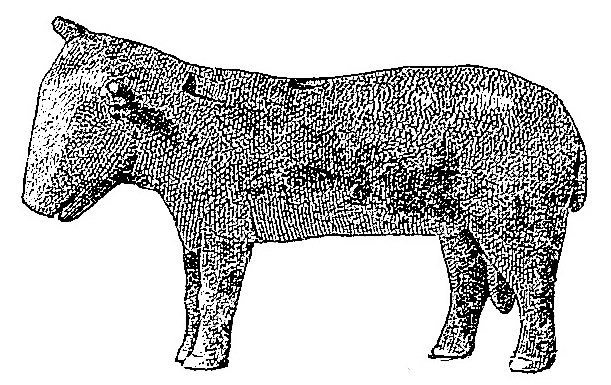| Oct/Nov 2016 • Poetry • Special Feature |
| Oct/Nov 2016 • Poetry • Special Feature |

The remains of our house
haunt me. They've followed me to the seacoast
and I think I smell woodsmoke drifting
on the tidal swell of the Passagasawakeag,
I imagine my cheeks tired from blowing
on the embers in the Modern Clarion,
aching for a fire. I could drive north, confront
the hulk of the house, or what's left of it.
A wall of burdocks, a passion of knotweed,
that's what I'd have to pass through to get
to the skeleton of that building. Last time
the shed roof had fallen, maples and young elms
crowding in.Summers
I sat there on a low stool, head against
Mrs. Goat, the spritz of milk in the pail
a pale morning song. What an illusion
we had then! That dream of a life
only the young can hold. Now you are old—
out in Washington, suffering too much
salt in your blood, too little feeling
in your feet. The children bridge our lives,
and we drift as if through a culvert
our voices echoing tinnily over the wires.
Out in the bay moored boats pull
against the tide, concentric circles
wave out from lines anchored by chains
and heavy blocks of concrete sunk in mud.
What I look for in the bottom
left drawer of my desk is a present
given to me years ago by my younger son,
a set to use for Japanese calligraphy
which I never tried, thinking it beyond me.Instead I find two boxes of wooden matches,
a stack of old CDs, the extra wheels
for my old electric typewriter so I could
change the font from Script to Courierwith the illusion of ease. Old picture frames,
directions for the remote mic for my hearing
aid, a folding scale for weighing envelopes
and a stack of old photos, black and white—one of my former husband curly hair sketched
against distant leaves, twenty and pensive,
a white shadow stretching to sky behind
him. I'd like to think his sadness remainsin the picture, that it hasn't followed him
out along the western edge of the world.
It was my mantle then, to hurt him, though
I didn't do it intentionally. Togetherwe stumbled through those early years,
carrying our imperfections wadded up
behind our eyes, looking for the bridge
into the mellowness of life, tryingdrugs, trying lovers, wanting both
exquisite glory and the ordinary life
of coming and going, sinks and beds,
wallets and pockets without holes.We elbowed out of the circle of each
other's arms, lips became sticks poked
and prodded in discontent. I know now
you rarely find what you are looking for.
In My Parents' Living Room One Christmas Morning
From the sparsely armed tree, tinsel hangs
like loose hair. Walter faces the flash, mouth
open in sleepy surprise. Dark lines showbetween the slats of the Venetian blinds.
In the foreground a half-opened present lies
about our hurry, our carelessness. We circlethe tree, lift each gift, consider shape, weight,
what we hold in our minds, what we longed for,
and only then do we tear the striped and patternedpaper, slip ribbons aside. Somewhere out of the picture
our parents remain immobile, the black taste
of coffee on their tongues. They have put wishes on layawayuntil the day they could afford to bring them home,
hide them on the closet shelf. We kneel before the illusion
of plenty, cheap baubles on the tree winking secretsin colored lights. My hair falls forward, hides my face, I cannot
say what is in my hands—a flat package unopened, not
a bridge to anything. My understanding of life goes no furtherthan the room, than the silver garland, than the morning
chill. My mother's coming death remains a stranger, someone
who looks in the window, unmoved by the holiday scene.